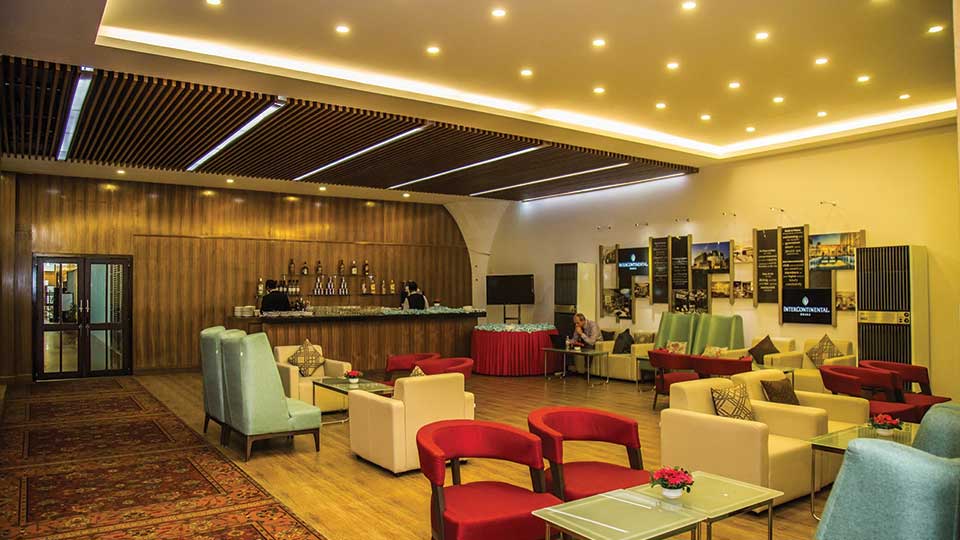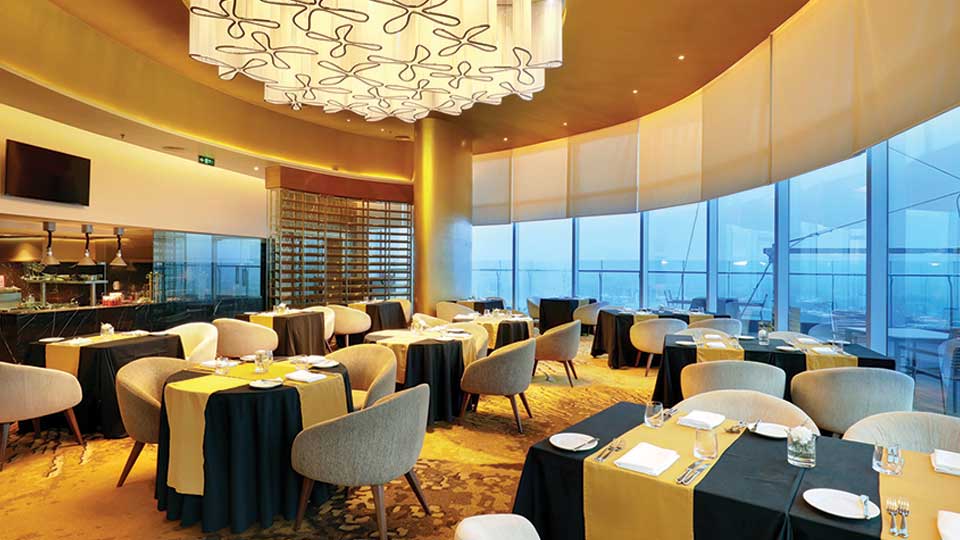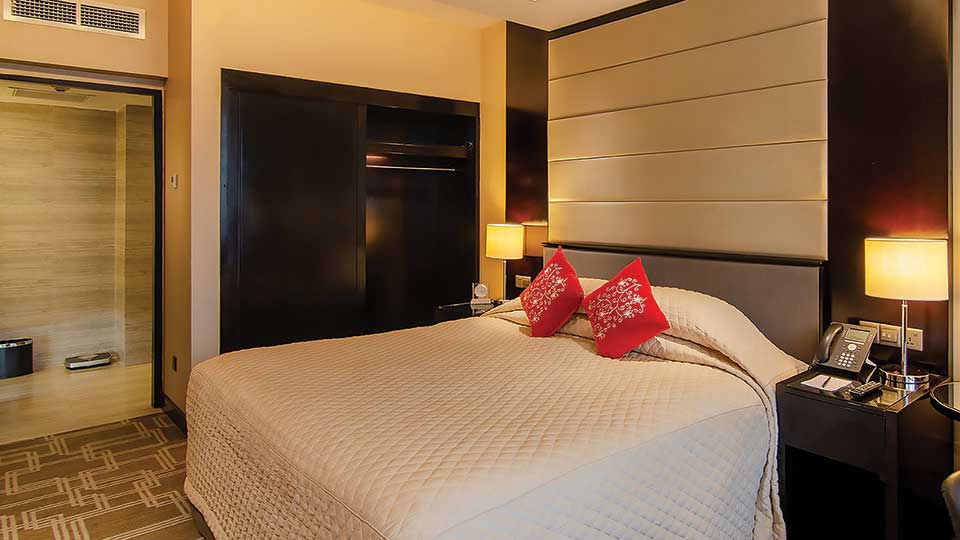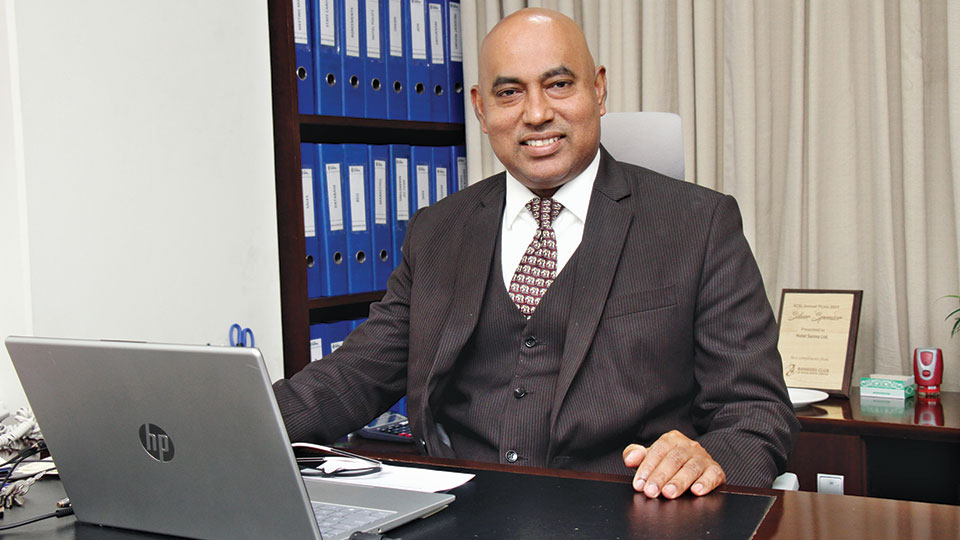
Dhaka : Despite challenging market conditions, Hotel Sarina Dhaka continues to hold its ground as one of the capital's most prominent star properties, driven by its strong food and beverage offerings, repeat international clientele, and ongoing upgrades.
General Manager Channa Ekanayake, a Sri Lankan hospitality veteran, while talking to The Bangla-desh Monitor, said the hotel currently sees an average occupancy of 39 percent, slightly below the citywide average, but expects to close the month at 45 percent. "The overall market is slow, but after the elections, political stability will restore confidence among business travelers, and we expect growth from the second quarter next year," he expressed.
At Sarina, 90 percent of guests are business travelers, dominated by Chinese and Indian nationals, followed by Ukrainians, Armenians, Sri Lankans, and airline crews, among others. "The lion's share of our guests are foreigners, many of whom are repeat visitors. About 3,500 Sri Lankans are working in Bangladesh's RMG sector, and for them as well as the other guest segments of ours, Sarina has become a true home away from home," he informed.
F&B, banquet strengths
For over two decades, Sarina has been a go-to destination for dining in Banani, with its flagship Summerfields restaurant enjoying loyal patronage. Recently, the hotel opened a new authentic Italian outlet, headed by a foreign chef with over 40 years of experience.
Banquets and catering are another strong revenue driver. "For the last three years, we have exceeded our banquet targets, including outside catering. Our competitive rates and service quality keep customers coming back," Ekanayake explained.
The hotel is investing further during the low-occupancy period, with plans to renovate its banquet halls, expand its 24-hour café fourfold, introduce a new menu at Amrit Indian restaurant under a new chef, and upgrade its rooms.
Located just minutes from Hazrat Shahjalal International Airport and Dhaka's business and diplomatic district, Hotel Sarina features 180 rooms and suites, three restaurants, a lobby café, three banquet halls, a health club, and a swimming pool.
Bangladesh's tourism potential
Turning to the broader tourism outlook, Ekanayake stressed that Bangladesh must learn from Sri Lanka's success in building infrastructure and diversifying tourism products.
"Fifteen years ago, Sri Lanka had no highways. Now, with a direct highway from Colombo Airport to Bentota, what used to take hours is done in under two hours. That connectivity has changed the game," he said.
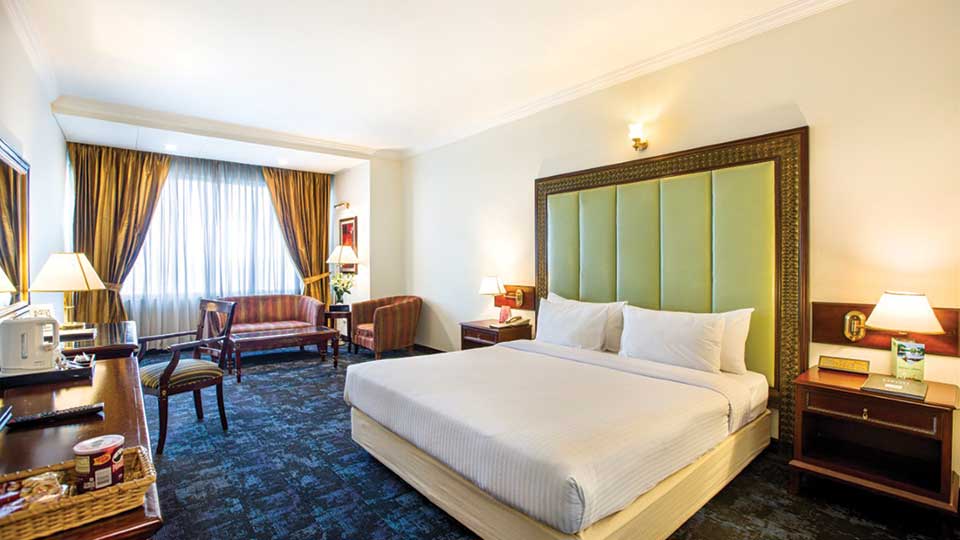
Sri Lanka, once hosting only 300,000 visitors annually, now attracts over 3.5 million tourists and is on track to cross five million within two years. "There is no off-season anymore. Sri Lanka is even ranked the number one destination for solo travel, thanks to safety, security, and a liberal environment. Tourists, even women, can party late at night, walk freely, and feel safe," Ekanayake said.
For Bangladesh, he believes destinations such as Cox's Bazar and Chattogram hold enormous potential. "Cox's Bazar is the world's longest beach. With better infrastructure, safety measures, and product development, it can become a global attraction," he emphasized.
Hotel rates in Dhaka are competitive compared to neighboring countries, but Bangladesh must diversify its tourism offerings beyond business travel. "Sri Lanka has city life, culture, wildlife, beaches, and nightlife - Bangladesh also has rich products, but they need to be properly utilized," he noted.
A balanced future
While Hotel Sarina continues to compete with international five-star chains in Dhaka, Ekanayake believes the future of Bangladesh's hospitality sector depends on how quickly the country addresses its tourism fundamentals.
"With the right infrastructure, connectivity, and diversification, Bangladesh can become a serious player in the region's tourism market, just as Sri Lanka has," he concluded.



